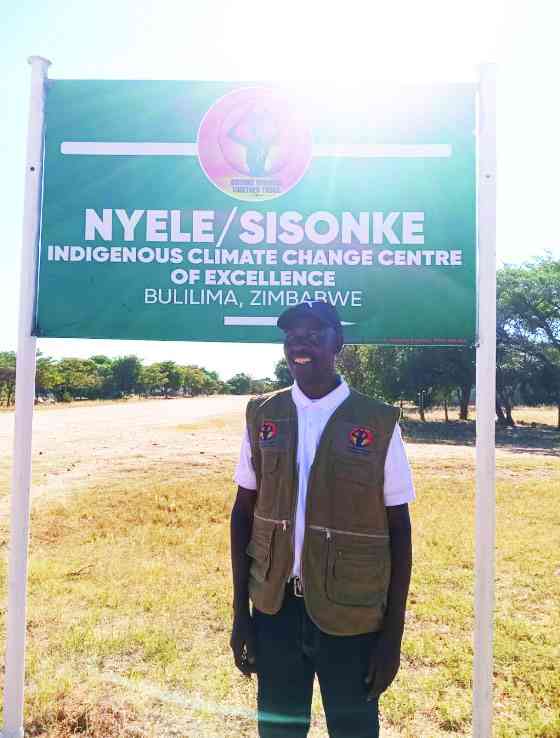
WASHINGTON — Right-wing American Christian groups that oppose sexual and reproductive rights are significantly increasing their spending in Africa, according to a new data analysis published ahead of the United States election, which could prove pivotal to abortion access both inside and outside the country.
Research by the non-profit Institute for Journalism and Social Change (IJSC) found that 17 groups increased their Africa spending by 50% between 2019 and 2022, the most recent year for which data is available.
The researchers say the data represents only a handful of Christian Right groups but indicates that they are making an increasingly concerted effort to influence abortion policy internationally as well as domestically.
A 2020 investigation by open Democracy revealed that US$54 million flowed from mostly the same US Christian Right organisations to Africa between 2008 and 2018.
In Africa, their activities range from helping like-minded politicians obstruct key reproductive health legislation to supporting domestic groups in their fight against progressive abortion-related court rulings — tactics borrowed from the anti-abortion playbook in the United States.
While abortion laws have slowly liberalised across the continent, reproductive rights advocates say campaigning by American right-wing groups that brand themselves as “pro-family” could reverse those changes.
“The work of these groups has multifaceted effects on the continent,” said Martin Onyango, senior legal adviser for Africa at the Centre for Reproductive Rights, a US-based advocacy group.
“We have seen a proliferation of anti-rights legislation on the continent of Africa, from Ghana to Uganda to Kenya to Malawi.
“We have groups that are now proposing legislation in parliament to take away fundamental rights — access to reproductive health care — that have been in place on the continents for decades.”
Many of the groups named in the report have close ties to former President Donald Trump (pictured) and his administration and have influenced Trump on reproductive rights issues. Several are on the advisory board for Project 2025, a set of policy proposals seen as the probable playbook for a second Trump term.
American anti-abortion groups have campaigned in Africa for decades in tandem with their fight at home. Bolstered by conservative Republican politicians, the 1973 Helms Amendment, which limits the use of U.S. foreign aid for abortion, was passed after the Supreme Court’s Roe v Wade ruling. President Ronald Reagan then enacted the Mexico City policy, known as the global gag rule, which restricts U.S. funding to any international organization that provides, or even counsels on, abortion. The US Christian Right has found Africa, with its strong tradition of Evangelical Christianity, fertile ground for further promoting and spreading its ideology. The result is a global movement that unites anti-abortion groups, religious leaders, and politicians around a common goal: eliminating the right to safe, legal abortion services worldwide.
Despite some liberalisation, abortion remains highly restricted in many African countries. As of 2022, abortion was essentially illegal in six African countries and permitted only to save the life of the mother in another 13 countries.
Research has shown that banning abortions increases maternal mortality due to unsafe abortions. As of 2019, sub-Saharan Africa had the highest abortion case-fatality rate of any world region, at roughly 185 deaths per 100,000 abortions, a total of 15,000 preventable deaths every year.
Uganda’s Penal Code prohibits abortion except to save the mother’s life. In 2015, the Ministry of Health approved standards and guidelines on the provision of safe abortion, but those were quickly withdrawn. Onyango says this was partly due to lobbying by right-wing groups, including Family Watch International (FWI), a fundamentalist Arizona-based Christian organization whose spending in Africa increased nearly five-fold from 2019 to 2022.
Court cases challenging the withdrawal of those guidelines have not yet been heard, says Onyango.
“When they’re set for hearing, the bench is quickly reconstituted and the exercise starts again from ground zero,” he said. “And it is not by default. It is by clear design that that conversation is not intended to be concluded.”
According to reproductive rights advocates, American right-wing groups are playing the long game in Africa.
“Kenya, Uganda, Ghana appear to be the epicenter of a lot of anti-rights action, and that is where they build a lot of their strategy before exporting them to other countries. … When they leave Kenya, they go down to Malawi, and they replicate the same actions,” said Onyango.
Abortion was illegal in Kenya until 2010, when a new constitution permitted the procedure in a handful of circumstances, including during emergencies or if the life or health of the mother is in danger. Subsequent court decisions allowed abortions in cases of rape and incest and expanded the definition of “health” to include mental health.
But access remains limited, and studies have shown that most Kenyans have limited or inaccurate knowledge of their country’s abortion laws and policies. The legal landscape is confusing, even for medical providers who hesitate to perform the procedure to avoid criminal prosecution.
Ever since Roe v Wade was overturned in the United States in 2022, reproductive rights advocates have worried that the same thing could happen in Kenya.
“We export a lot of our values and cultures from the United States, so the Roe v. Wade decision was completely misinterpreted here, because in our setting what we got was that abortion has been made illegal in the United States. That’s the message that we got because Roe was overturned,” said Dr. Ernest Nyamato, associate director of quality of care at the reproductive health care nonprofit IPAS.
In Kenya, a conservative group called the Kenya Christian Professionals Forum (KCPF) is appealing two recent court decisions: one affirming that abortion is a fundamental constitutional right, making the arrest of patients and providers illegal, and a second upholding the constitutional right to access abortion when there is a risk to the pregnant person’s health.
The KCPF’s chairperson, Charles Kanjama, denies receiving funding from any American organizations. But its annual report shows that its parent organization, the African Christian Professionals Forum (ACPF), was sponsored in 2023 by FWI. That same year, FWI’s president, Sharon Slater, was a featured speaker at ACPF’s annual conference.
FWI said it was unable to provide comment on this story within the requested time frame.
Part of the challenge of tracking the funding flows is a lack of transparent documentation. “We’re treating what we found as the tip of the iceberg,” said Claire Provost, co-founder of the IJSC. “We didn’t capture all funding from U.S. anti-rights actors into Africa. It’s a diverse and evolving ecosystem, with new organizations being set up all the time.”
The influence of these groups is clearly visible. Their members share training materials with African organizations, travel to the continent for conferences, and sponsor events such as Kenya’s March for Life, an annual demonstration against abortion, says Saoyo Tabitha Griffith, a Kenyan lawyer and women’s rights advocate.
In 2019, Nairobi hosted the ICPD25, a global population and development conference. Across the street from the venue, a few hundred people gathered in opposition to sexual and reproductive rights, including several groups tracked by the IJSC.
Former Trump administration delegates, including Valerie Huber, who was U.S. special representative for Global Women’s Health, were also there. Huber was a chief architect of the Geneva Consensus Declaration, a document submitted by the United States to the United Nations that encourages governments to improve women’s health care without abortion. She now travels across Africa promoting anti-abortion ideology for her non-profit, the Institute for Women’s Health (IWH), another Project 2025 sponsor.
In a statement, an IWH spokesperson wrote that no IWH funds had been spent in Africa, other than for routine travel expenses, and that IWH has not provided any grants to African groups or individuals, is not partnering in Kenya, and has no plans to increase spending in Africa.
Huber hopes “to improve health and thriving for women, their children, their families, and their communities through high-quality, research-based policy guidance to nations,” the spokesperson wrote.
America’s global abortion policy seesaws back and forth depending on which party holds office, and Griffith said she witnessed years of damaging changes during Trump’s presidency. “I do not think I want to even imagine what a Trump re-election would mean for the women of Kenya,” she said.
— pulitzercentre










